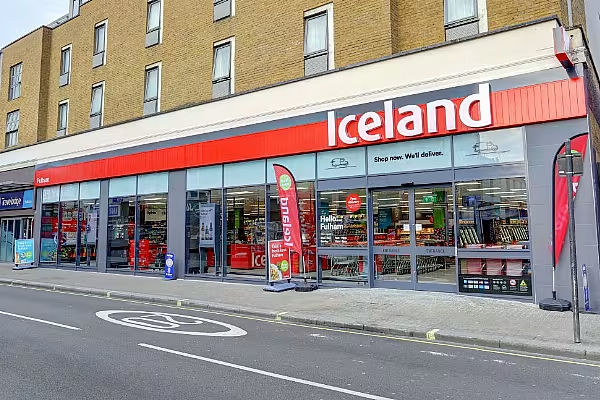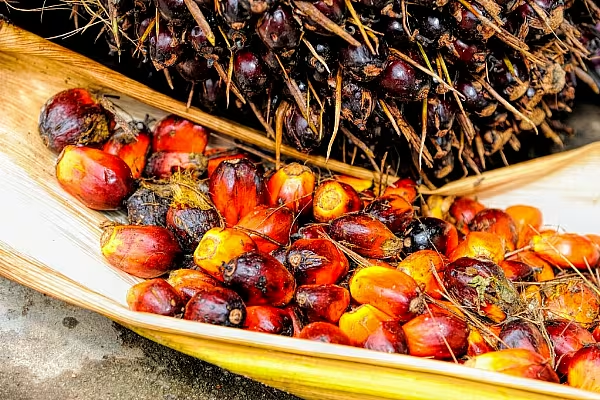There was a time that so-called 'eco warriors' camped out in trees to prevent roads being built, or took to the high seas to block oil tankers from entering seaports.
Now, you're more likely to find them on the high street.
UK-based frozen foods retailer Iceland made headlines back in January when it announced it would be making its private label range plastic-free by 2023.
“The onus is on retailers, as leading contributors to plastic packaging pollution and waste, to take a stand and deliver meaningful change,” Richard Walker, the company's managing director said at the time.
Now, the company has sought to double down on its environmental credentials with the announcement that it will stop using palm oil as an ingredient in its private label food products.
The move will be implemented by the end of 2018, with some 130 SKUs affected.
It said that it has already replaced palm oil with alternatives such as butter and sunflower oil in more than half the products earmarked for change.
'No Such Thing'
While many retailers and suppliers have signed up to charters such as the Roundtable on Sustainable Palm Oil, which growth and use of sustainable oil palm products, Walker said that the company did not believe that such certifications are watertight, pointing to studies that indicate palm oil and wood pulp plantations are among the biggest drivers of deforestation in Indonesia and Malaysia.
"Until Iceland can guarantee palm oil is not causing rainforest destruction, we are simply saying 'no to palm oil'," Walker commented.
"We don't believe there is such a thing as verifiably 'sustainable' palm oil available in the mass market, so we are giving consumers a choice for the first time."
Walker added that it was his belief that "no major supermarket or food manufacturer can substantiate any claim that the palm oil they use is truly sustainable, as the damage being caused to the global environment and communities in South East Asia is just too extensive."
Strategic Move
Iceland will likely garner more headlines for its move, which has been hailed by Greenpeace as a direct response to the palm oil industry’s ‘failure to clean up its act’.
But changing the makeup of around 130 SKUs in a retailer that currently boasts 2.1% market share in the UK grocery sector is a calculated move that is unlikely to affect its cost base that much.
Indeed, the business' trading director Bev Mitchell was asked this very question on BBC Breakfast earlier this morning, with the programme's host suggesting that Iceland should go one further, and also remove suppliers' products that contain palm oil, if it is serious about addressing the issue.
"We do know that we are stocking branded products that contain palm oil, and at some point in the near future, now that we are underway with our own label development, we will start talking to our branded suppliers about their products as well," she commented.
"We have to give our customers choice."
Next Steps
Iceland's plastics commitment earned it high praise from across the supply chain - the Daily Mail's headline on the day of the announcement said it all: Supermarket Bans Plastic.
How long before this headline becomes the norm? #plastic #retail #supermarket #waronplastic @IcelandFoods @ellenmacarthur pic.twitter.com/6FUryrIVYx
— ESM Magazine (@esm_magazine) January 16, 2018
Indeed, Walker used that announcement to call out other retail chains to follow its lead.
“The onus is on retailers, as leading contributors to plastic packaging pollution and waste, to take a stand and deliver meaningful change,” he said. “Other supermarkets, and the retail industry as a whole, should follow suit and offer similar commitments during 2018. This is a time for collaboration.”
With its latest announcement, while the headlines are likely to be less muted, environmental groups are already queuing up to congratulate the retailer; a level of goodwill that will persist for some time.
But Iceland should tread carefully in terms of its 'eco-warrior' positioning from now on.
Yes, its moves are admirable, but no brand wants to be accused of 'greenwashing': wrapping itself in an environmental cloak to distract attention from the day-to-day challenges facing the business.
Understandable, But Could Backfire
Noting that the palm oil industry has much to do to improve environmental practices, Dr Jake Bicknell and Dr Matthew Struebig of the Durrell Institute of Conservation and Biology (DICE) within the School of Anthropology and Conservation at the University of Kent, said that Iceland's move is understandable, but could backfire.
The Institute is among the bodies working with palm oil certification bodies and companies to improve the way in which palm oil cultivation affects the environment, including demonstrating the advantages of connecting high-quality rainforest patches in oil palm plantations to allow wildlife to move freely.
"As certification of palm oil becomes more widespread, with it will come improved prospects for wildlife," they note.
"Therefore, Iceland’s move to ban palm oil products, rather than work with the industry to seek sustainably sourced solutions, could be viewed as a step backwards. Environmentally conscious consumers should demand palm oil from certified sources, but avoiding it altogether runs the risk of putting pressure on other crops that are equally to blame for the world’s environmental problems.
"Time will tell whether retailer moves to withdraw palm oil will exacerbate environmental problems in the long term or provide the added pressure needed for producers to implement certification practices."
© 2018 European Supermarket Magazine – your source for the latest retail news. Article by Stephen Wynne-Jones. Click subscribe to sign up to ESM: The European Supermarket Magazine.














